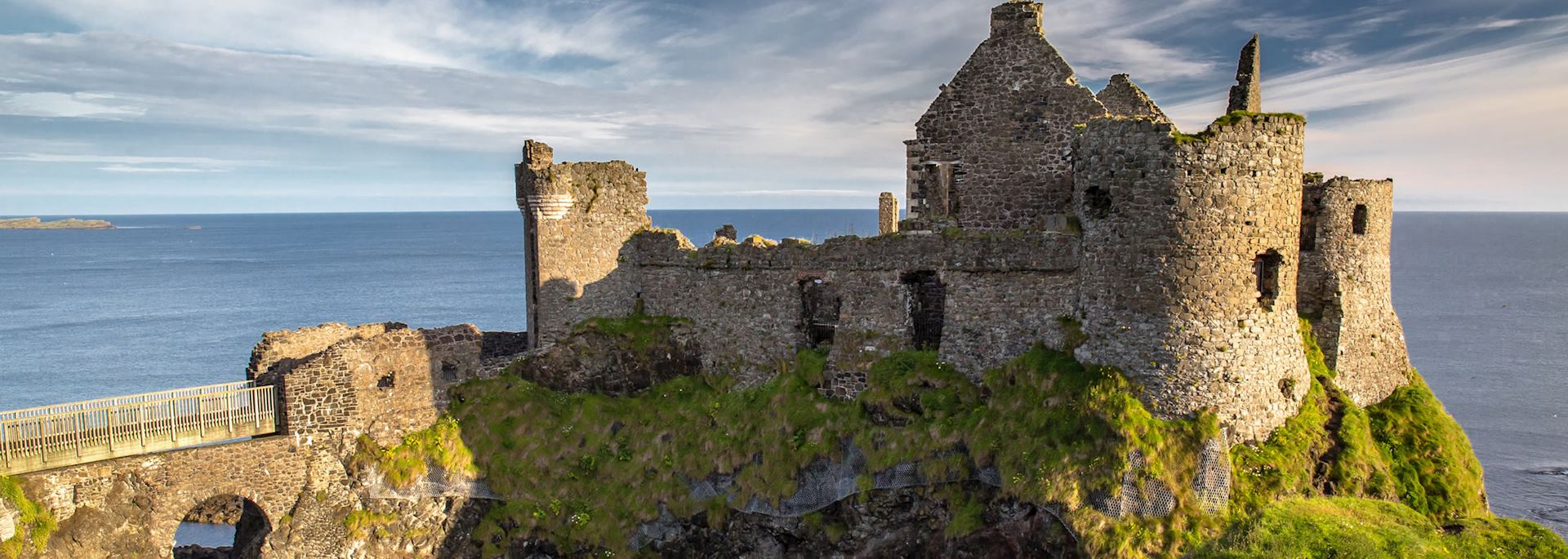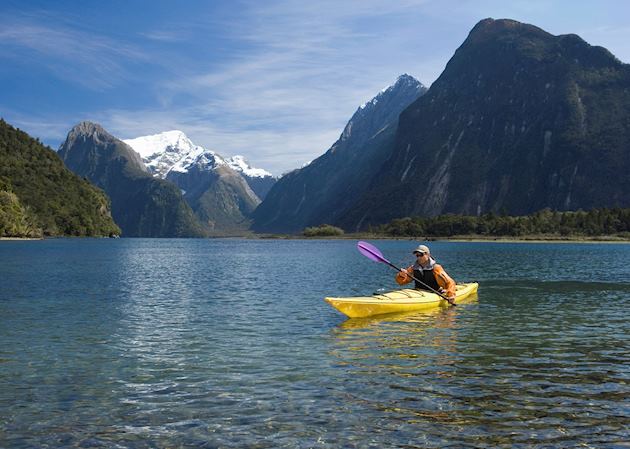The final season of HBO’s hit show Game of Thrones premieres on 14th April, the final chapter of the sweeping epic about dragons, dark magic, lost heirs and violent passions. Places like King’s Landing, Meereen and the Water Gardens of Dorne might be fictional, but much of the show was shot on location in cities you can visit.
Below, members of our team suggest the best ways to delve into the show’s filming locales. Casual watchers may want to add a stop or two on their trip, but devoted fans can plan a whole themed trip to Northern Ireland to visit the many shooting locations there.
Winterfell and the Kingsroad in Northern Ireland
Archery and axes at Castle Ward

By UK and Ireland team member Emily
I tossed back my dark cloak and drew back the bow until the fletching tickled my cheek. Lowering the arrow slowly, I sighted the target, let out a long, slow breath and then released the string. There was a thrumming noise and the arrow zinged through the air and landed with a soft thunk in the butt, biting into the third ring on the paper target.
For just a moment, I was standing in the courtyard of Winterfell rather than being a visitor at Castle Ward.
An hour southeast of Belfast, Castle Ward was the setting for many scenes at Winterfell, including those shot around the archery range in the historic farmyard. It’s also home to the stable where Ned Stark killed Lady, and the tree where Brienne found dead bodies hanging. We can arrange for you to take a private tour of the various locations dotting the grounds.
My guide, William, was intimately involved in the shooting of the show — as a passionate archer, he even helped to train some of the actors with a bow — and my tour was filled with little anecdotes from the show’s time here. For example, I hadn’t realized how much Winterfell was created through special effects until he pointed out where reality was given a little help with movie magic.
As part of the tour, I was invited to don an authentic Stark costume and take a lesson from William. In addition to the long bow, I also learned the art and science of throwing an axe. There’s something deeply satisfying about the noise a hatchet makes as it thumps into the wood of the target.
Direwolf puppies Summer and Greywind were played in the movies by a pair of northern Inuit dogs, Thor and Odin, who you can meet during your tour. Friendly, well trained and much older than when they had their turn in the spotlight, these two dogs are happy to pose for photos and play with visitors.
I suggest eating your post-archery meal at the Cuan, located a few minutes’ drive away on the shores of Strangford Lough. Not only is the seafood impeccably fresh, the restaurant also displays several props from the show, including Ice, the Stark family sword made from Valyrian steel. Most of the actors playing the Stark family stayed here during shooting and the props were a thank you gift from the production.
The Kingsroad and Iron Islands on the Antrim Coast
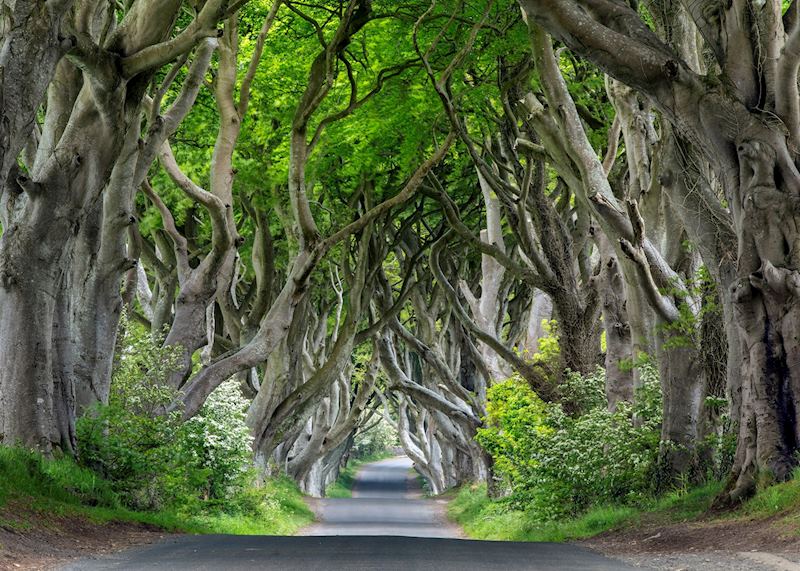
The tree-lined section of the Kingsroad that leads to King’s Landing was shot at the Dark Hedges, a rural stretch of road near the Antrim Coast, about an hour north of Belfast. Two rows of gnarl-branched beeches grow alongside the narrow road, their boughs intertwining to form a tunnel that’s either foreboding or romantic, depending on your personal view.
The Hedges date to the late 1700s, the work of a local landowner named James Stuart. More than 150 beeches were planted and over the centuries they’ve become a popular spot for photographers, particularly those on their way to see the nearby Giant’s Causeway.
Cars have been banned from the road to help preserve the health of the trees, which suffered losses in some recent storms. In 2016, two of the fallen trees were turned into ten intricately carved doors that depicted different scenes from season six. You can find them at pubs, cafés and inns around the country, usually near a filming location, including the nearby Ballygally Castle and Mary McBride’s, as well as the aforementioned Cuan, near Castle Ward.
The Hedges can get crowded with visitors, especially in the afternoons, but when I visited in December it was deserted — great for atmospheric photos.
Just 15 minutes from the Dark Hedges, Ballintoy is a tiny port village on the island’s rugged northern shore. The small, bare-rock islets that dot the cold gray waters were stand-ins for the Iron Islands, and the town itself was Lordsport Harbor, where Theon Greyjoy returned home.
Not far away, the skeletal remains of Dunluce Castle tumble down into the sea. The site doesn’t look much like its movie counterpart, the Greyjoys’ Pyke, thanks to a generous helping of digital animation. However, perched high on a headland, it’s a striking sight against the craggy coastline.
The Water Gardens of Dorne and Braavos in Spain
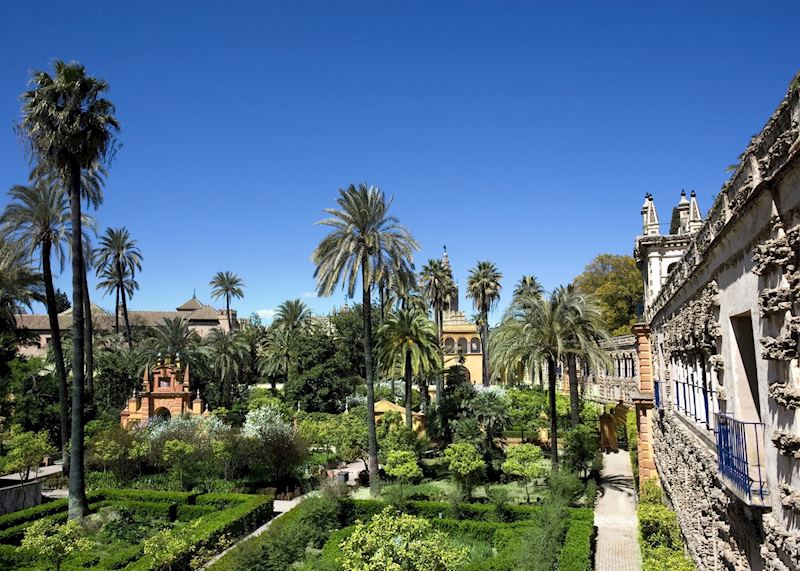
By Spain specialist Geoff
Once a Roman settlement, the walled town of Girona was historically a pawn in various real-world games of thrones, traded back and forth as different empires struggled to control the city. On a walking tour of the city, you can see that turbulent history reflected in the mélange of Romanesque, Gothic and Baroque architecture that made it such a good setting for the series.
Many scenes in Braavos were filmed among the Plaza del Jurats, a large square space, paved with stones and lined with medieval buildings, which didn’t need much help from the special effects team. The nearby Baños Árabes (Arab Baths) are a 12th-century Christian reimagining of classical Roman baths —these are the same baths that Arya stumbled into during her chase with the Waif, which also took her down the nearby Carrer Sant Llorenc, a long, steep alley barely as wide as my arms’ reach.
Their blind-fighting training was shot just a short walk away, at the cathedral, which also stood in for the Great Sept of Baelor in King’s Landing. The 90 stairs up to the main façade are the site of Queen Margaery’s atonement.
Far from Girona, southwest across the entire length of the country, Seville’s Real Alcázar is arguably the world’s best example of Mudéjar-style architecture. Mudéjar means ‘the left behind’, a reference to the Moors who stayed in Spain after the Christian reconquest — this palace was built by the same artisans and architects who created the better-known Alhambra.
The Alcázar is still a royal residence today, its jewel-box interior hidden away behind imposingly warlike walls. The intricately patterned columns, airy courtyards and arabesque arches acted as the stand-in for Sunspear, the seat of House Martell and the capital of Dorne. The palace’s gardens, with their geometric patterns and tinkling fountains, are the living embodiment of the Water Gardens.
About an hour and half away is Almodóvar del Río Castle, which was a body double for Highgarden. Here, you can stand in the same window from which Olenna Tyrell watched the invading Lannister army amass outside her gate.
You can see all of these sites on a ten-day tour of Seville, Barcelona and Madrid.
Astapor and Yunkai in Morocco
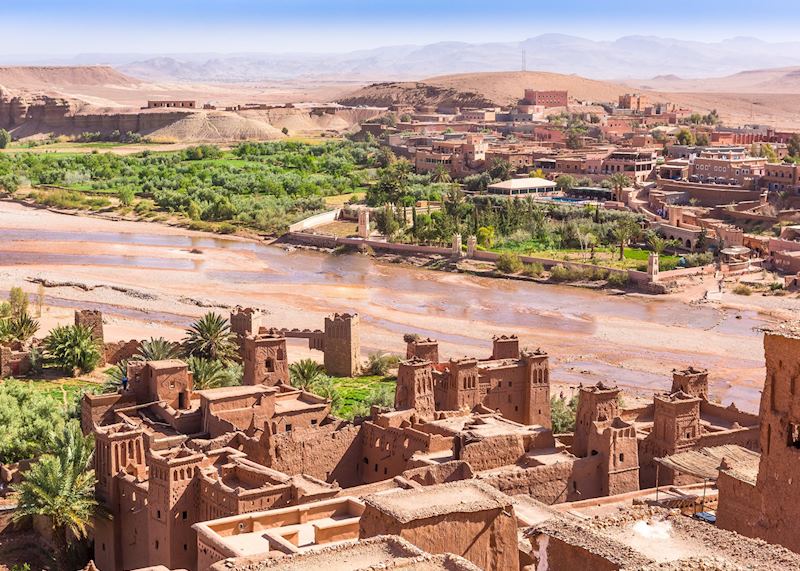
By Morocco specialist Ninwa
Perched on the western shore of Morocco, Essaouira is a cosmopolitan seaport known for its relaxed pace and spice-scented medina. I like to end trips to Morocco there and unwind at the city’s riads or wandering through the port, watching fishermen mend nets.
It’s always a bit of a shock to see Essaouira represent the corrupt slave city of Astapor. The 18th-century Portuguese ramparts, known as the Scala, are unmistakable in the scenes where Daenerys meets her Unsullied army for the first time. And the narrow, cannon-lined corridor along the side of the Scala is clearly the Walk of Punishment.
A three-hour drive from Marrakesh, Aït Benhaddou is a fortified mudbrick city that seems unchanged over the past millennium. That’s at least partially an illusion — the UNESCO World Heritage Site has been extensively renovated in the past few decades, at least in part to provide settings for dozens of movies and television productions, including Game of Thrones.
This is a stand-in for Yunkai, the Yellow City, which Martin describes as being made of yellow bricks, with aging walls, towers, and tall, stepped pyramids. Standing in front of the ksar, I found it easy to imagine he had Aït Benhaddou in mind when he wrote that.
You can see both cities on a grand tour of Morocco.
King’s Landing and Meereen in Croatia
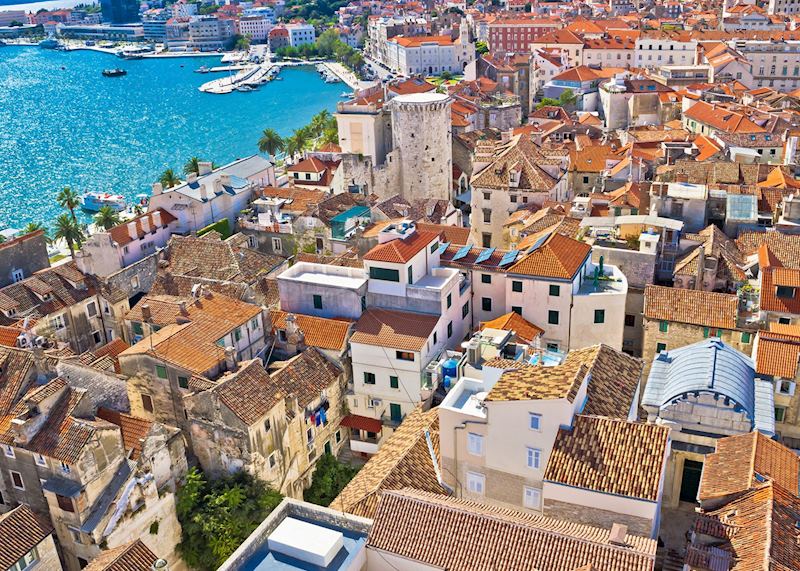
By Scott, a member of our Croatia team
Croatia’s two largest cities also played major roles in the filming of the series. Perched on the southern coast, Split has some of the best-preserved Roman ruins in the world, including Diocletian’s Palace. This sprawling, living complex encompasses more than 200 different buildings and acts as the beating heart of Split’s Old Town — the narrow streets are filled with shops, cafés and homes for more than 3,000 of the city’s residents.
The palace was also the setting for Meereen, where Daenerys trained her three dragons and led a slave revolt, aided by her Unsullied army.
Even further south, Dubrovnik’s Old Town didn’t require many special effects to play the role of King’s Landing. Its medieval walls, fortresses and gates all played parts as the Red Keep, Qarth and Westeros. Cersie’s ‘walk of shame’ began at the Baroque Jesuit Staircase, which leads from Saint Ignatius Church to Gundulić Square, and the Trsteno Arboretum was transformed into Tyrell’s gardens. Off the coast, the island of Lokrum is home to the Benedictine monastery used as the House of the Undying in the city of Qarth.
If you’d like to visit these sights, we’re happy to announce that we’ll be offering tours to Croatia starting at the end of 2019.
Was this useful?

